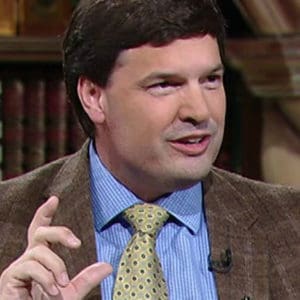Why do Christians need better conversations about contemplative prayer? This is because Christians have a special mission in the shipwreck of atheistic materialism. Against what would seem to be an invincible administrative state and the absolute claims that technocracy makes over human existence, Christians proclaim the freedom that we have in Christ. The Catholic Church has 2000 years of saints and mystics whose witness and wisdom gives us cause to believe that even as it seems we have most failed our task, God always reveals another marvelous way that He has already won the definitive victory of good over evil. The lives and writings of these saints are important to study if we want to search the inexhaustible riches of Christ. Their witness and wisdom articulate the words of the Word so that we can hold fast to the reason for our hope in the spiritual battles of our own day.
Put differently, a spiritual revolution, like any other revolution, needs strategic objectives and proven tactics that lead to a change of course. The objectives and tactics of a spiritual revolution are about a spiritual change of course, a return to the sacred in human affairs. This means the kingdom we fight for is not of this world – and the saints who have gone before us are citizens of the world that is yet to come, and their teachings can help us change the course of human affairs away from war and towards peace, one heart at a time.
The enemies that we stand against are not flesh and blood. Rather, our spiritual enemies are obstacles and adversaries to the truth. They claim that the merely material is enough for human thriving, that ultimate human reality rests not in the sacred but the profane, that an ideology and social myth are strong enough to bear the weight of human existence. They deem souls made in divine image and likeness to be no more than cogs in the wheel for social progress — and this progress is always a falling out of harmony, an oppressive conflict, the displacement of wholesomeness.
They would seem to have a hegemony over the means of social communication – and so we must struggle to answer their claims in the arena of public opinion and in the marketplace of ideas.
Against every obstacle to the truth, we must re-propose in compelling ways that all the material pursuits of the work-a-day world ring empty if they are not made subordinate to the spiritual. We must make the case that the meaning of profane activities remains vulnerable to the change and flux of the times (O tempora, o mores) unless oriented toward the sacred. We also need to advance the conviction that the truth proposed by Divine Revelation provides an understanding for human life far more meaningful, coherent, and reliable than can be inferred from any political and social conjecture.
The battle for the heart is waged in the mind, so say the desert fathers of every age, and what we hope to accomplish in this journal is to equip contemplatives to fight this battle. This revolution is all about the battle for the heart – for the Kingdom of God is above all a sovereignty of hearts bound together in love whose legitimacy is its radical claim to the truth. Spiritual truth is no abstraction. It is above all performative – this truth calls into action the deepest depths and highest heights of the heart.
This means that to accept that the spiritual truth is more real than any material fact is not to concede that the spiritual is not concrete and particular, a force that implicates us in the nitty-gritty of the here and now. On the contrary, the Incarnation has revealed that what is most spiritual is manifest in what is most unique and limited. The Word made flesh inclines us to search for what is weakest and least impressive as that which most draws the Holy Spirit. The spiritual objectives of this revolution implicate us in all the earthly poverty and humble limits of bodily life — in fact, we could even say that the strategic goal of a spiritual revolution is to offer one’s own body as a living sacrifice so that, together with others, God is rightly worshipped and every heart might know that it is wanted and loved.
In the spiritual revolution advocated in this journal, the strategic objective is the same for all: the glory of God. Articles and essays will draw from a multitude of saints and angels whose messages minister to us on the battlefield of life. Up to now, only a few of these great warriors get our attention and even then, the Church has undertaken only the smallest portion of all that they have to say. If unpacked carefully, these messages are as marching orders to help us take the battlefield, just as they did, one heart at a time. We need to attend better to all they have to say until we see the horizons that they see and share the depth of insight that they know, until we to realize in our own time the victory of good over evil.
This revolution is about a renewal of the mind. Christ Jesus has opened the way of knowing the will of God by giving us the Holy Spirit, and 2000 years of saints in the life of the Church all point to this Way, this Truth, the Life. Through the Holy Spirit, the Risen Lord is at work renewing our minds, helping us to see with His own resurrected eyes possibilities that eyes subject to death cannot know. As we learn to open the eyes of our hearts and as we receive the life that the Father communicates to us in this filial contemplation, the freedom of a transformed life awaits us — precisely because whenever we seek the truth we make room for the Holy Spirit to make known what the call of love demands.
________________________________________________
This post was originally published on Spiritual Revolution: A Journal of Mystical Theology and is reprinted here with permission.
Image: Unsplash




